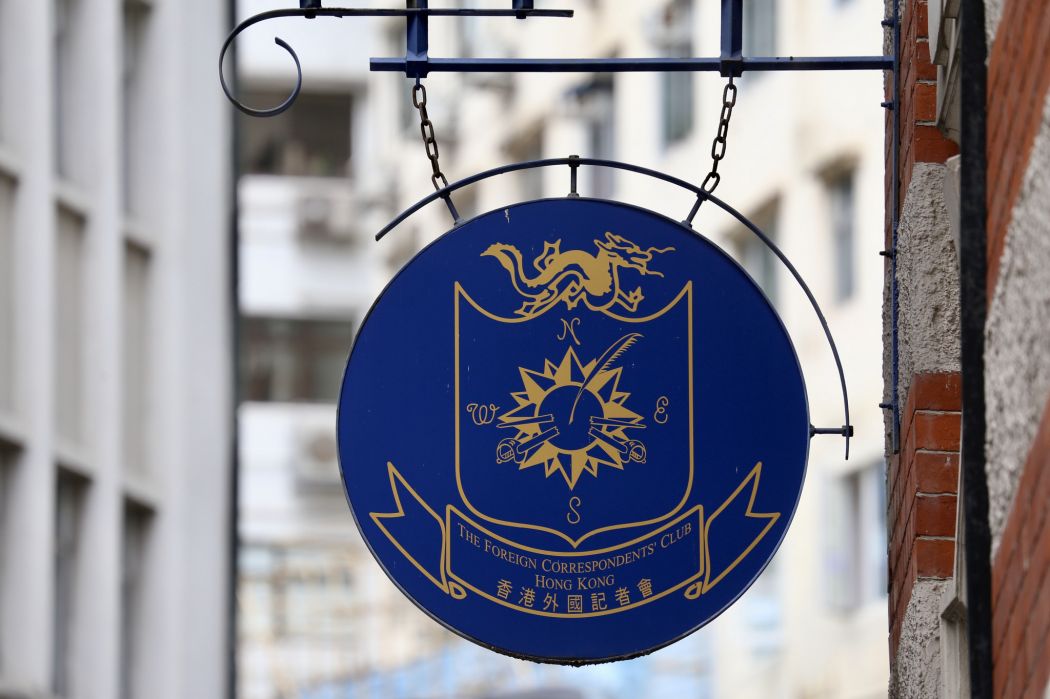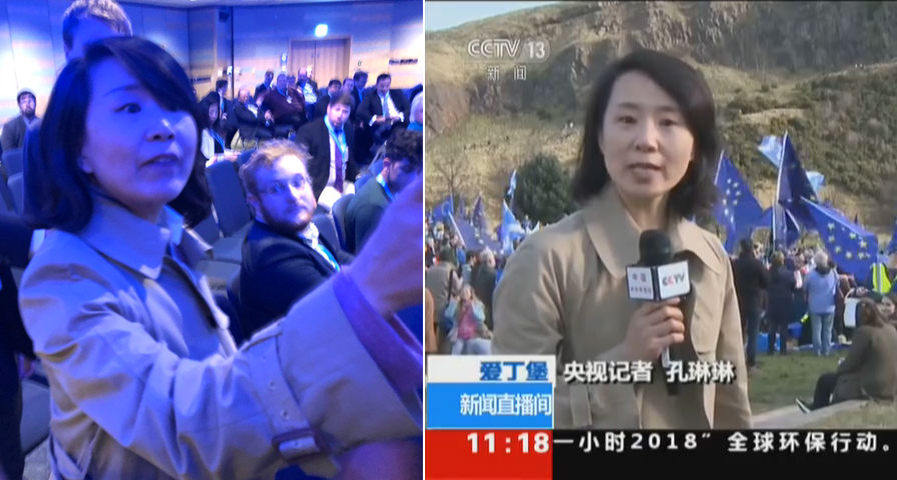Let there now be no shadow of doubt. Any pretence that Hong Kong has not changed fundamentally, and that the city’s core values, way of life and institutions remain intact and functioning can now be dropped.
The news that the Hong Kong authorities refused to renew a working visa for Financial Times Asia editor Victor Mallet has deservedly caught the headlines not only in Hong Kong but around the world. Questions will be raised in the UK parliament and statements will be made by the relevant government departments. Academics, journalists and other China-watchers are twittering privately.

Mallet is a respected journalist, commentator and author. He is no activist journalist, nor maverick hack looking to make a name. He is a journalist of the highest order, one invited to speak at the World Economic Forum alongside President Xi.
See also: What Hong Kong’s expulsion of a foreign journalist tells us about leader Carrie Lam’s woes
To hear the likes of Priscilla Leung and Starry Lee, and the lesser subsets of humanity that find sanctuary in the DAB, speaking of the man last week I was reminded of the kind of Hongkongers who talk dismissively of the world’s problems over the mahjong table, and for whom all problems would be solved with a good crack of the cane. All their betters, men and women with whom they would not dare share table talk are all stupid and unpatriotic. “Go home gweilo!” Victor had once joked, having been told just that by a group of such patriotic aunties on the streets of Hong Kong. But now he is going.

Mallet is also an experienced hand on Hong Kong and China, having previously had a very successful posting as Chief Asia Commentator for the FT between 2008-2012. There are few foreign editors who know Hong Kong and its people as well. His wife, Michelle, grew up in this city. Indeed, within a year of returning to Hong Kong in 2016, I recall him telling me how the change in the city was “palpable” and that he could “feel” that same heavy cloud of oppression that weighed heavily on my own mind. It was this sense of a people and a place, and what was important to both, that make Mallet’s words such a delight to read when liberated from the confines of the FT. It was also, perhaps, this that made his presence unwelcome this Special Administrative Region of the Peoples Republic of China.
Few would disagree that the reason Mallet’s visa application was turned down was due to his role at the Foreign Correspondents Club’s hosting of National Party leader Andy Chan in August. The situation was best surmised by another international journalist I had an exchange with: “Victor hosted a lunch talk, in his capacity as acting president and on behalf of a club that has representatives from many international media on its board who collectively approved the event. I attended the talk and believe he handled a difficult and sensitive matter with dexterity and without shirking his responsibility to step up as the most senior elected FCC officer in town.” This is a rather more humane view that our current and former leaders seem to be blind to now that political considerations weigh so heavily in the air.

Neither Mallet nor the FCC sought to be political. Both acted on principle, that regardless of what views one might hold, both sides must be heard. This is what is meant by seeking balance, and what makes good journalism. As he was spat upon and brayed at by a pro-establishment patriotic crowd, egged on by lawmakers, Mallet declared that it would be against the Club’s stance as a champion of free speech and their belief that it is vitally important to allow people to speak and debate freely. It was an act that would once have been seen to epitomised the Hong Kong press corp at its best. It is not, clearly, what is expected by this government nor of the SAR today. In fact, by declining to renew his visa the government has sent a clear and frightening message: what Mallet represents is not only not to be tolerated, but will be punished.
Instead, we must now learn to see as the acceptable face of journalism the patriotic fervour of an irate CCTV journalist cursing and threatening a panel whose opinion she did not share. This was not even in China, but at the UK Conservative Party Conference in Birmingham. It is undignified to repeatedly a call a man a liar in his own country without argument or reason, and to deride the guests of your hosts as “traitors”. It is then peace-loving to repeatedly slap a member of the audience who tries to calm you down, and to decry that your rights are being infringed when you are asked to leave. This incident, we must now accept, is good patriotic journalism.

So let us then celebrate One Country Two Systems with Chinese characteristics. Let us celebrate the freedoms of thought, association and assembly we are guaranteed by international law as our human right. Let us also celebrate our freedom of press, guaranteed by the British and adhered to and respected by Beijing.
Let us not complain, for as all right-thinking people will tell us, there is no such thing as unrestrained freedom of expression. We will no doubt be reminded in the coming days that in Germany open advocacy of Nazism and anti-Semitism is illegal. Let us forget the history that may underpin this particular restriction, and that German students in German universities actively discuss and challenge it without fear of legal prosecution. And let us forget also that such restrictions were in part justified as a means to protect people from political ideologies that would seek to limit these freedoms further.
Then there will be others who will in the coming days say each country has the right to impose restrictions as they see fit, and to define what can and cannot be permitted. Let us then forget that authoritarianism is defined by how what is right and wrong is decided, and in course by what is and is not permitted; and that liberty is dependent on the extent freedoms are permitted.

The decision to refuse to renew the visa of such a respected FT editor marks a clear line that prior to enacting article 23 security legislation, earmarked for 2020, Beijing will not tolerate. Hong Kong is but a small part of a much wider programme to batter the Chinese people into a sense of social cohesion through the acceptance of a single nationalist-party ideology. It is becoming ever more acceptable wisdom that the 2014 Umbrella Movement protests did not represent an awakening, as much as Hong Kong’s last gasp for survival – the streets filled not in celebration of hope for a better future, but as one final hurrah for a truly uniquely Chinese community.
